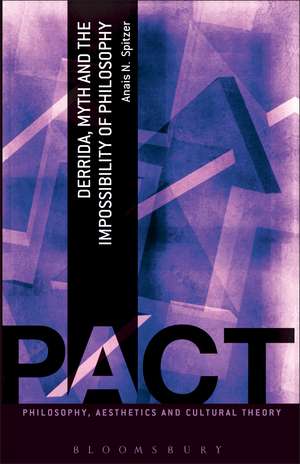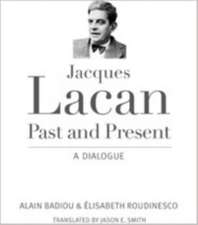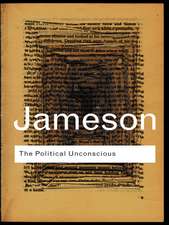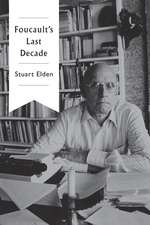Derrida, Myth and the Impossibility of Philosophy: Philosophy, Aesthetics and Cultural Theory
Autor Dr Anais N. Spitzeren Limba Engleză Paperback – iun 2011
In Derrida, Myth and the Impossibility of Philosophy, Anais N. Spitzer shows that philosophy cannot separate itself from myth since myth is an inevitable condition of the possibility of philosophy.
Bombarded by narratives that terrorize and repress, we may often consider myth to be constrictive dogma or, at best, something to be readily disregarded as unphilosophical and irrelevant. However, such dismissals miss a crucial aspect of myth. Harnessing the insights of Jacques Derrida's deconstruction and Mark C. Taylor's philosophical reading of complexity theory, Derrida, Myth and the Impossibility of Philosophy provocatively reframes the pivotal relation of myth to thinking and to philosophy, demonstrating that myth's inherent ambiguity engenders vital and inescapable deconstructive propensities. Exploring myth's disruptive presence, Spitzer shows that philosophy cannot separate itself from myth. Instead, myth is an inevitable condition of the possibility of philosophy. This study provides a nuanced account of myth in the postmodern era, not only laying out the deconstructive underpinnings of myth in philosophy and religion, but establishing the very necessity of myth in the study of ideas.
Bombarded by narratives that terrorize and repress, we may often consider myth to be constrictive dogma or, at best, something to be readily disregarded as unphilosophical and irrelevant. However, such dismissals miss a crucial aspect of myth. Harnessing the insights of Jacques Derrida's deconstruction and Mark C. Taylor's philosophical reading of complexity theory, Derrida, Myth and the Impossibility of Philosophy provocatively reframes the pivotal relation of myth to thinking and to philosophy, demonstrating that myth's inherent ambiguity engenders vital and inescapable deconstructive propensities. Exploring myth's disruptive presence, Spitzer shows that philosophy cannot separate itself from myth. Instead, myth is an inevitable condition of the possibility of philosophy. This study provides a nuanced account of myth in the postmodern era, not only laying out the deconstructive underpinnings of myth in philosophy and religion, but establishing the very necessity of myth in the study of ideas.
| Toate formatele și edițiile | Preț | Express |
|---|---|---|
| Paperback (1) | 263.18 lei 43-57 zile | |
| Bloomsbury Publishing – iun 2011 | 263.18 lei 43-57 zile | |
| Hardback (1) | 947.54 lei 43-57 zile | |
| Bloomsbury Publishing – iun 2011 | 947.54 lei 43-57 zile |
Preț: 263.18 lei
Preț vechi: 302.45 lei
-13% Nou
Puncte Express: 395
Preț estimativ în valută:
50.36€ • 52.71$ • 41.92£
50.36€ • 52.71$ • 41.92£
Carte tipărită la comandă
Livrare economică 31 martie-14 aprilie
Preluare comenzi: 021 569.72.76
Specificații
ISBN-13: 9781441100207
ISBN-10: 1441100202
Pagini: 224
Dimensiuni: 138 x 216 x 15 mm
Greutate: 0.32 kg
Editura: Bloomsbury Publishing
Colecția Continuum
Seria Philosophy, Aesthetics and Cultural Theory
Locul publicării:London, United Kingdom
ISBN-10: 1441100202
Pagini: 224
Dimensiuni: 138 x 216 x 15 mm
Greutate: 0.32 kg
Editura: Bloomsbury Publishing
Colecția Continuum
Seria Philosophy, Aesthetics and Cultural Theory
Locul publicării:London, United Kingdom
Caracteristici
Presents a detailed deconstructive account of myth in relation to logos in a postmodern context.
Notă biografică
Anais N. Spitzer is a Visiting Instructor of Religious Studies at Prescott College, USA. She has also held positions at Hollins University, the University of New Mexico, and the College of Santa Fe.
Cuprins
Introduction \ 1. 'what, after, of the remain(s)...' \ 2. Soliciting Philosophy's Tears \ 3. Rend(er)ing the Pharmakon: The Would Without a Cure \ 4. Secreting Myth: To Think Sa Otherwise \ 5. Myth and the Gift, If There is Any
Epilogue \ Bibliography \ Index.
Epilogue \ Bibliography \ Index.
Recenzii
"Anais Spitzer's Derrida, Myth and the Impossibility of Philosophy is a compelling study of the intimate, complex, and often unexpected aspects of the relationship between philosophy and myth. Philosophy considered as the pursuit of logos is shown to begin with mythos and to be embroiled with it throughout its history, down to the present moment. Despite its effort to hold myth apart and to repress its presence from conceptual frameworks, myth seen as disseminative mythos returns from within, haunting and disrupting the putative purity of philosophical discourse - converting it into what Spitzer archly calls "dis-course," a run-around rather than a straight run to logological truth. Spitzer brings out novel aspects of Derrida's deconstructive project at certain key points - a project that ends by illustrating in the case of mythos itself the very logic of the excluded other as still remaining within the text, however disguised and disfigured. She demonstrates the fertility of Mark C. Taylor's later thinking on complexity theory as an essential supplement to Derrida's work, thereby illustrating the deep affinity of these two otherwise very different thinkers. Most importantly, Spitzer gets us to rethink the very character of philosophy and myth, taken separately and together. This is an eloquent, forceful, and altogether timely contribution in a world in which new myths purport to be unquestionable, while philosophy bides its time in self-absorbed conceptual retreat." - Edward S. Casey, Distinguished Professor of Philosophy, SUNY at Stony Brook, USA; author most recently of The World at a Glance





















